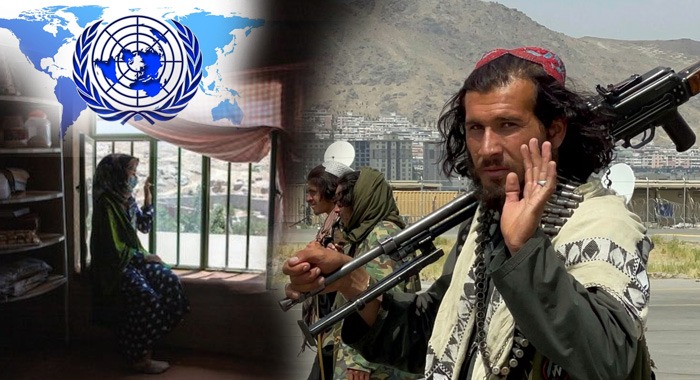The United Nations has issued a stark warning over the deteriorating human rights landscape in Afghanistan, describing an environment marked by systemic repression, deepening humanitarian despair, and escalating threats to women’s rights, media freedoms, and civilian safety.
In its latest report to the Security Council, the UN confirmed that Afghanistan remains the only country in the world where girls are barred from secondary and higher education, a policy now entering its fourth consecutive academic year. Despite repeated international appeals, the de facto Taliban authorities have made no move to reverse this ban. According to the report, the denial of education is having far-reaching consequences, not only stripping girls of a fundamental right but also eroding broader social progress and contributing to a national sense of disempowerment and isolation, particularly among women.
The Taliban’s harsh enforcement of the Law on the Propagation of Virtue and the Prevention of Vice has been singled out as a key factor in the country’s repressive trajectory. UN field reports confirm that this law, implemented by broad and discretionary authority, has led to arbitrary detentions, public beatings, and severe restrictions on women’s freedom of movement. Women without male escorts, mahrams, continue to be denied access to basic public spaces, including health clinics, markets, and transportation.
Media freedoms are also in free fall. In February, the Taliban’s Ministry of Information and Culture instructed Afghan outlets to suspend political talk shows, further silencing dissent and restricting public debate. Journalists are facing heightened intimidation, with UNAMA documenting the detention of reporters accused of cooperating with foreign media or producing so-called “anti-Taliban propaganda.” Two employees of Radio Begum, for instance, remain behind bars after being convicted under these vague charges.
The UN also expressed grave concern over recent extrajudicial killings and arbitrary detentions of former government officials and Afghan National Defence and Security Forces (ANDSF) members, actions that directly contradict the Taliban’s earlier promise of general amnesty. Four such killings and at least ten arbitrary detentions were verified during the reporting period.
The report also highlighted the Taliban’s revival of public executions, an act widely condemned by international human rights bodies. On April 11, four men were publicly executed in Badghis, Nimroz, and Farah provinces after being convicted of murder, with Taliban officials attending the executions. The UN Human Rights Committee has previously ruled that public executions violate international norms, including articles of the International Covenant on Civil and Political Rights, to which Afghanistan remains a party.
On the humanitarian front, the situation remains dire. The Afghanistan Humanitarian Response Plan for 2025 is facing a massive funding shortfall. As of mid-May, only 15.7% of the $2.42 billion required to assist 16.8 million people had been raised. Meanwhile, the number of undocumented Afghan returnees from neighboring countries, particularly Pakistan and Iran, is surging. Between January and April, over 426,000 undocumented Afghans returned to Afghanistan, including more than 117,000 from Pakistan alone, many of them deported without the means to reintegrate or access basic services. Despite these needs, humanitarian access is becoming increasingly constrained. Over 300 incidents of interference by Taliban authorities were recorded in just four months, ranging from aid obstruction to the detention of humanitarian workers, including 13 UN staff.
The UN’s gender-focused consultations further underline the scale of despair among Afghan women. Respondents across the country reported mental health challenges, social isolation, and a growing sense of political invisibility. Women noted that the loss of public presence and decision-making power has effectively erased their agency in Afghan society. Employment restrictions, education bans, and movement constraints have created a layered and chronic form of marginalisation, with long-term implications for Afghanistan’s social cohesion and economic recovery.
Adding to the tragedy is the continued toll from unexploded ordnance. During the first quarter of 2025 alone, at least 16 civilians, including 10 children, were killed, and 35 others injured. Without urgent donor support, the UN warned, its mine action programme, a key lifeline in affected areas, may shut down as soon as July.
The Secretary-General has called on the international community to step up financial and political support, not only to address immediate humanitarian needs but also to push for rights-based engagement with Afghanistan’s de facto authorities. He urged donor states to ensure that assistance to women and girls is protected and that all returns of Afghan refugees are conducted voluntarily, safely, and with dignity.
Ultimately, the UN’s assessment is grim but clear: the Afghan people are trapped between a collapsing economy, vanishing freedoms, and a governance system that remains rigid, punitive, and deeply exclusionary. Without sustained global attention and pressure, the report suggests, Afghanistan’s human rights crisis may deepen even further, with lasting consequences for regional stability and international responsibility.





